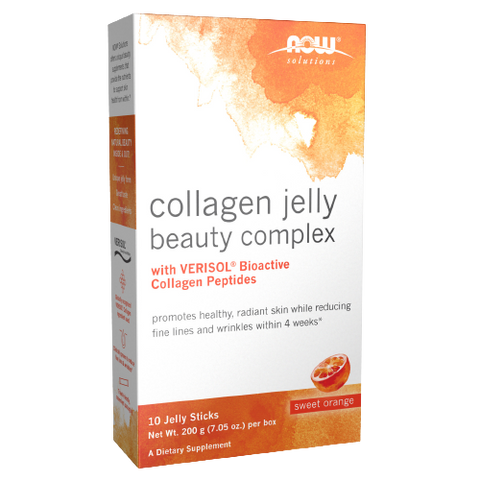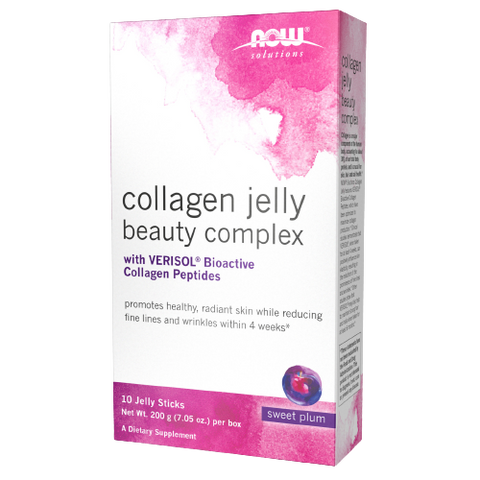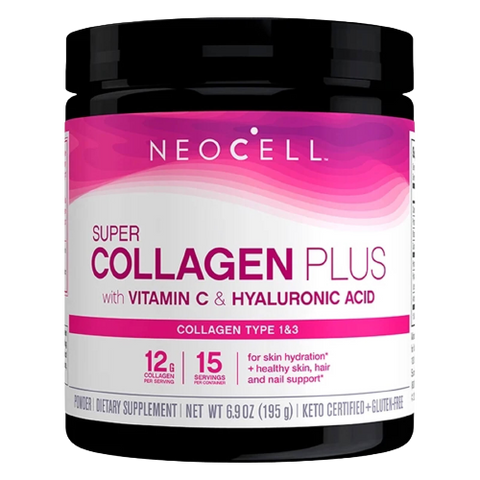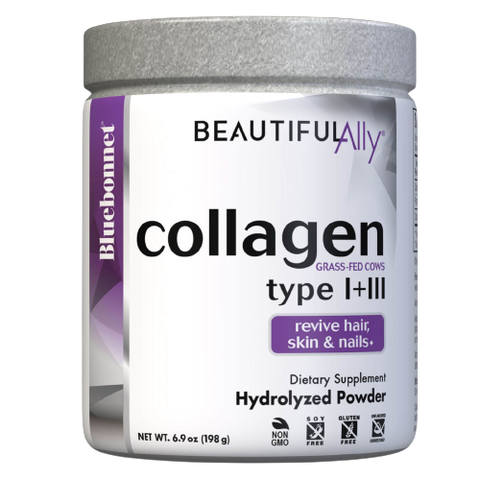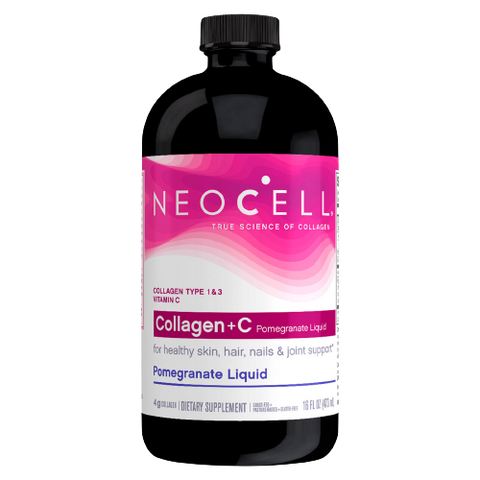Collagen is always a hot topic in the health and fitness industry and many people supplement with collagen for many different reasons such as the hopes of firmer, wrinkle-free skin, joint protection, thicker and stronger hair, perhaps even for a slight boost in muscle mass. But what type and or form of collagen is best and does it even work?
Let’s find out!
What is collagen?
Collagen is the most abundant protein in the human body. Roughly about 33% of the body is made up of collagen and its primarily responsible for the formation of the fascia - a string-like connective tissue that holds the muscles, joints, organs and skin together - allowing all these elements to move together seamlessly without any friction or pain [1].
The body produces collagen naturally and we also absorb collagen from animal sources such as meat, fish, bone broth, and egg whites and vegan sources such as collagen manufactured from genetically modified yeast and bacteria [2].
Types of collagen
Collagen supplements generally contain type I and III or type ll collagen, but there are in fact five main types of collagen each with a unique function [3]:
- Type I: Makes up 90% of the body’s collagen; is densely packed and provides structure to the skin, bones, tendons and ligaments.
- Type II: Found in elastic cartilage and is responsible for joint support.
- Type III: Found in the muscles, arteries and organs.
- Type IV: Again found in the layers of the skin.
- Type V: Present in the cornea of the eye and in certain layers of the skin and hair, as well as the tissue of the placenta in pregnant women.
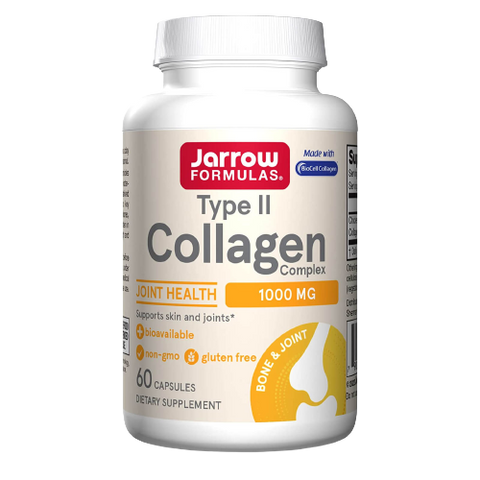
Forms and sources of collagen:
Apart from the different types of collagen, there are also different forms and sources of collagen supplements that can sometimes cause confusion, so let's clarify that!
An original collagen molecule is too big to be absorbed by the body and a process called hydrolysis is then used during the production of collagen supplements to break it down into smaller, digestible collagen peptides. Thus, hydrolyzed collagen and collagen peptides are the exact same form of collagen, just with interchangeable names [4].
Bovine collagen is a derived from the bone, cartilage and hide from animals in the bovine category - most often cows. Marine collagen, on the other hand, is collagen derived from by-products of fishing and ocean life including skin and scales of fish and is known for being highly absorbable by the body. Both bovine and marine collagen are rich sources if Types I and III collagen, and most closely resembles the collagen found in the human body.
Losing collagen with age & supplementation:
As early as age 20 our collagen production starts slowing down. Another 20 years down the line, we’re losing roughly 1% of our collagen per year and at 80 years of age, we only have about 25% of the collagen left that we had when we were young. This reduction in collagen throughout the body brings about fine lines, wrinkles, dry and saggy skin, achy joints and a substantial loss in muscle mass. External factors that often times speed up collagen reduction are UV exposure, environmental pollution, smoking and exposure to second hand smoke, as well as alcohol, sugar, and processed food consumption [5].
Supplementing with collagen is never a bad idea, considering the rapid rate against which the collagen stores in our bodies get depleted.
At DailyVita you'll find the perfect collagen supplement for your individual needs. Whether it be in capsule, liquid, flavored or unflavored, bovine or marine-based, single servings or larger quantities - we've got just the right collagen supplement for you!
Happy Collagen Shopping, folks!

